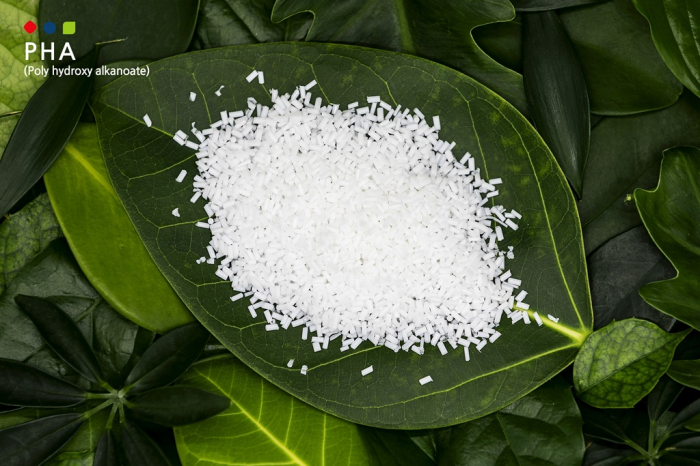Biodegradables
Lotte to develop seawater-degradable bioplastic material
Lotte Chemical aims to complete the development of petrochemical-based PHA production technology and commercialize it by 2023
By Feb 15, 2022 (Gmt+09:00)
1
Min read
Most Read
LG Chem to sell water filter business to Glenwood PE for $692 million


Kyobo Life poised to buy Japan’s SBI Group-owned savings bank


KT&G eyes overseas M&A after rejecting activist fund's offer


StockX in merger talks with Naver’s online reseller Kream


Mirae Asset to be named Korea Post’s core real estate fund operator



South Korea’s Lotte Chemical Corp. plans to develop a decomposable bioplastic material in seawater for production based on petrochemicals for the first time in the global industry to cut carbon emissions.
Lotte Chemical said on Monday that it will develop polyhydroxyalkanoates (PHA), an eco-friendly bioplastic material that degrades 100% in seawater with a target of commercialization by 2023.
The petrochemical unit of Lotte Group is conducting research on the material with a local university in Seoul supported by the Ministry of Science and ICT as well as the National Research Foundation of Korea.
PHA, used in packaging materials, medical products and cosmetics containers, is currently produced only with microorganisms. It is hard to secure raw materials, resulting in low outputs of PHA and higher prices, since microorganisms, which need processes such as cultivation and fermentation, are used for production.
The commercialization of PHA production based on petrochemicals will allow mass production with petrochemical and biomass raw materials that are easy to procure, Lotte said. That will improve price competitiveness.
Demand for biodegradable plastic materials continued to grow with consumption expected to more than double to 2 million tons in 2026 from 970,000 tons in 2020, said Lotte, citing an industrial forecast.
Last week, Lotte unveiled a plan to invest 602 billion won ($502.4 million) in eco-friendly materials plants at one of its domestic petrochemical complexes.
Write to Jeong Min Nam at peux@hankyung.com
Jongwoo Cheon edited this article.
More to Read
-
 Battery materialsLotte Chemical to invest $502 mn in eco-friendly materials plants in Korea
Battery materialsLotte Chemical to invest $502 mn in eco-friendly materials plants in KoreaFeb 07, 2022 (Gmt+09:00)
2 Min read
Comment 0
LOG IN


